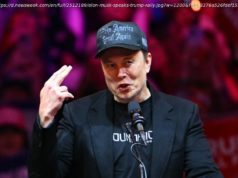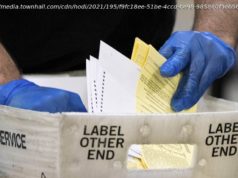I’ve been reading the post-mortems on last week’s G20 summit in Hamburg, and depending on the source, it was either the dawn of a new Era of Good Feelings in global affairs, or another catastrophe in the history of the 6-month-old Trump…
I’ve been reading the post-mortems on last week’s G20 summit in Hamburg, and depending on the source, it was either the dawn of a new Era of Good Feelings in global affairs, or another catastrophe in the history of the 6-month-old Trump presidency. The truth, I suspect, lies somewhere in-between. But having observed, and even witnessed, my share of G20 gatherings since they were a mere G7 (1999) —indeed, even some of the pre-G7 iterations of earlier decades—I must concede that the stakes in U. S.-Russian summitry have surely evolved over time.
For the main story of this latest G20, apart from the left-wing riots and destruction in the elegant old Hanseatic port city of Hamburg, was the meeting of the Russian and American presidents. And by the standards of the recent historical past, the encounter between Donald Trump and Vladimir Putin was, by any measure, anticlimactic.
This year, from the media perspective, the two main topics of contention were the comparatively soporific subject of trade relations—a particular interest of our businessman-president’s and a perennial sore point with the Russian strongman—and the exciting new issue of Russian meddling in American (and European) elections, which the Russians have been doing, with varying degrees of intensity and success, since the 1920s, at least. Trump raised both sensitive subjects with Putin, and the two seem to have cordially agreed to disagree—which, once again depending on your perspective, was either progress, of sorts, or a shocking dereliction of statesmanship.
From my own perspective, I have to conclude that, at a minimum, we should be thankful that a quarter-century after the collapse of the Soviet Union the mutual hostility between our country and Russia appears to be at room temperature. For it is difficult to overstate the real and manufactured drama of such encounters in the not-too-distant past.
The spirits of Geneva (1955) , or Camp David (1959) , or Glassboro (1967) , which emerged from the occasional encounters between American diplomats and presidents and the post-Stalin leadership of the Soviet Union, were usually greeted with near-ecstasy for having delivered the West from the imminent threat of nuclear war. There were dramatic missteps, of course. At the very same chronological point in his presidency as Donald Trump, John F. Kennedy faced off with Nikita Khrushchev in Vienna (1961) —and did such a poor job, by Khrushchev’s reckoning, that the Soviet dictator was emboldened to divide Berlin physically two months later and ship nuclear missiles to Russia’s friendly Cuban outpost 90 miles from the American mainland. In Hamburg, I should say, compared to the debonair JFK the bumptious DJT did comparatively well.
Ronald Reagan, who was determined to eliminate the threat of nuclear annihilation, as well as end the consensus policy of mutual coexistence (called détente after the Nixon/Kissinger years) , was consistently criticized throughout his first term in office by Democrats who complained, in the famous words of Walter Mondale, that Reagan was the first president «since Herbert Hoover»—always a reliable indicator of Republican malfeasance—not to meet with his Soviet «counterpart.»
Yet Reagan’s equally famous rejoinder—that the geriatric Soviet leadership (Leonid Brezhnev, Yuri Andropov, Konstantin Chernenko) tended to perish serially before he could greet them at the summit—didn’t stop him from talking to Mikhail Gorbachev in Geneva in 1985. It is nearly as difficult to recall the media melodrama that attended their first encounter—the weeks and months of fevered worry and speculation, the «live coverage» of airport arrivals and initial handshakes—as it is to recall that nothing especially substantive was discussed or achieved.
In his defense, it must be said that Trump seems to have behaved impeccably, more or less, in Hamburg; and the smiles and handshakes with Putin were no more or less significant than Reagan’s cordiality toward Gorbachev. But there are two instructive comparisons between then and now, and both are worth mentioning.
First, the Trump-Putin summit seems to have reversed a longstanding partisan divide in American politics. For the first time since 1952, or thereabouts, Democrats in Congress and elsewhere have been loudly and capaciously suspicious of Russian intentions in the world, and consistently critical of what might be called Trump’s modest embrace of peaceful coexistence. (Even actress-activist Alyssa Milano, late of Charmed, and reliably progressive, plaintively tweeted: «Why aren’t you protecting us from Russia, @realDonaldTrump?») Still, you don’t have to be an admirer of Vladimir Putin to feel some slight measure of relief that the political leaders of the two countries are on speaking terms, and that the threat of dangerous conflict is correspondingly reduced.
The other comparison is more significant. When Dwight D. Eisenhower met Nikita Khrushchev, when Richard Nixon faced Leonid Brezhnev, when Ronald Reagan dealt with Mikhail Gorbachev, Russia was master of a nuclear-armed European empire that stretched as far west as the heart of Germany and as far south as the Mediterranean. Half the population of the European continent suffered under communist tyranny, directed from the Kremlin, while the other half was within easy reach of Russian missiles and tanks; the Soviet navy was challenging America and our NATO allies as far away as the Indian Ocean; and Moscow was doing considerably more than «meddling» in the internal affairs of independent republics in our own hemisphere.
Like any patriotic citizen, I disapprove of trade imbalances and resent ham-handed Russian attempts to promote mischief in American political campaigns. I also regret that the Obama administration passively opened the door to renewed Russian influence in the fractious Middle East, among other things, strengthening the hand of active adversaries of the United States such as Iran. But compared to the global stakes, as they were, less than a generation ago, the question of who hacked John Podesta’s e-mails, and why, is one for which the answer is more interesting than important.






